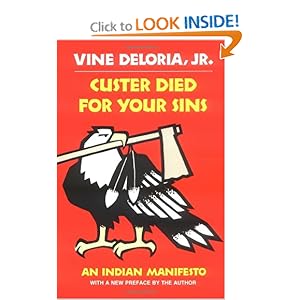by ALEXANDER COCKBURN and JEFFREY ST. CLAIR
 IMAGE/Amazon
IMAGE/Amazon
Serpents in the Garden
We edit CounterPunch, the popular radical website and magazine. We have fun doing it and we spend a lot of time laughing, as we chat on the phone between Petrolia, in Humboldt County, northern California, and Oregon City, Oregon, perched over the Clackamas River, a few hundred miles north across the Siskiyous, in a whole different weather system.
In the Sixties and Seventies, respectively, we both read English at college, Cockburn at Oxford, St. Clair at American University. English is a discipline that says, or used to say before the critical theorists seized power and put pleasure to the sword, that it’s okay to enjoy reading books and okay to put off more or less permanently what you’re going to do when you grow up: yet another definition of being a journalist or pamphleteer. We both like the blues and food and there’s a lot about both in CounterPunch. We both think that a big part of being radical in the best sense of the word is in enjoying, promoting, defending art and the spirit of freedom and pleasure and craft skills embodied by the arts. By the quality of life, art and freedom that radicals commend, so will radicals prevail.
You want to know where we stand? A few years ago we asked ourselves, and some friends, what we would include in the hundred best non-fiction books in the original English, published in the twentieth century—more or less. The library we’d send to other planets, or to George W. Bush (although we know Laura the Librarian is doing her best…) Then we asked ourselves and our friends about books in translation and music and films. But more of that later.
Culture, music, art, architecture and … sex. In the sixties the right thought the left had the best drugs and the best sex. Now? Well, the left sort of won that battle. These days the right knows its okay to have a good time and sneers at the left for staying at home to read up on theories of surplus value. But there are always subversive and revolutionary perspectives to be enjoyed in the Garden of Eden. And in the battle to return to that delightful piece of real estate, there were heroes thus far unsung, many of them writers. For every pleasure we enjoy, there’s a martyr in our past who paid the price.
Now for that reading list, so you can get acquainted with us.
AC / JSC
April, 2004
Edward Abbey: Desert Solitaire: a Season in the Wilderness
Louis Adamic: Dynamite: A Century of Class Violence in America, 1830-1930.
Philip Agee: Inside the Company: CIA Diary
Christopher Alexander, Sara Ishikawa & Murray Silverstein: A Pattern Language: Towns, Building and Construction
Michelle Alexander: The New Jim Crow: Mass Incarceration in the Age of Colored-Blindness
Jack Anderson: Confessions of a Muckraker: The Inside story of Life in Washington During the Truman, Eisenhower, Kennedy and Johnson Years
Kenneth Anger: Hollywood Babylon
Hannah Arendt: Eichmann in Jerusalem: A Report on the Banality of Evil
David Arora: Mushrooms Demystified: A Guide to the Fleshy Fungi
James Baldwin: The Devil Finds Work
Reyner Banham: Los Angeles: The Architecture of Four Ecologies
Frank Bardacke: Trampling Out the Vintage: Cesar Chavez and the Two Souls of the United Farmworkers Union
John Berger: Ways of Seeing
Jack Black: You Can’t Win
Robin Blackburn: The American Crucible: Slavery, Emancipation and Human Rights
Joseph Borkin: The Crime and Punishment of IG Farben
Jim Bouton: Ball Four
Richard Boyer & Herbert Morais: Labor’s Untold Story
Marshall Bradley, Fern Bradley & Barbara Ellis: The Encyclopedia of Organic Gardening
Harry Braverman Labor and Monopoly Capital: The Degredation of Work in the Twentieth Century
David Brower: For the Earth’s Sake
Norman O. Brown: Life Against Death: The Psychoanalytical Meaning of History
Robert Byron: The Road to Oxiana
Rachel Carson: Silent Spring
E. H. Carr: What is History?
Allan Chase: The Legacy of Malthus: the Social Costs of the New Scientific Racism
Samuel B. Charters: The Country Blues
Noam Chomsky: The Fateful Triangle: The United States, Israel and the Palestinians
Andrew Cockburn: The Threat: Inside the Soviet Military Machine
Claud Cockburn: I, Claud
William Cronon: Nature’s Metropolis: Chicago and the Great West
Elizabeth David: French Provincial Cooking
Alexandra David-Neel: My Journey to Lhasa
Vine DeLoria, Jr.: Custer Died for Your Sins: An Indian Manifesto
Angie Debo Geronimo: The Man, His Time, His Place
John Dower: War Without Mercy: Race & Power in the Pacific War
Counterpunch for more
